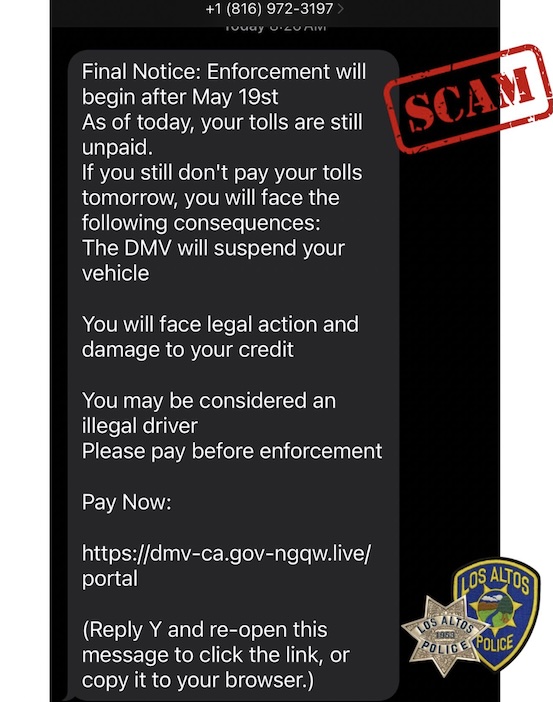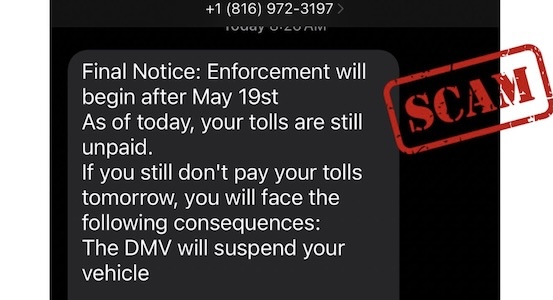
Trucking and Research and Safety
May 29, 2025
Idling Quietly
June 30, 2025We get tickets. It happens. We pay them or contest them and hope they don’t raise the insurance.
 But what happens when we get a text message with a link to pay your ticket or risk losing your license? And so we click the link and pay the fine. Only, there never was a ticket. We’ve been had.
But what happens when we get a text message with a link to pay your ticket or risk losing your license? And so we click the link and pay the fine. Only, there never was a ticket. We’ve been had.
That scenario contributed to more than $50 billion in cybercrime theft from 2020 to 2024. And it’s growing, year-over-year.
The bad guys have built on a scam that moved through the country a couple months ago, which pulled money from texts about unpaid highway tolls.
The 17 States affected, so far: Alabama, Arizona, Colorado, Illinois, Indiana, Florida, Georgia, Louisiana, Minnesota, New Hampshire, New Jersey, New York, North Carolina, Pennsylvania, South Dakota, Tennessee and Wyoming.
The states have responded with helpful advice. In Pennsylvania, for example, the Attorney General’s consumer alert said:
“These messages always contain a link to pay. Do not click on the link or copy the link into your browser. These messages are from scammers trying to obtain your personal information or to scare you into paying them … PennDOT does not send text messages about traffic violations or fines. Consumers who receive a text message or email from anyone alleging to be from a government agency should reach out to that agency to confirm the authenticity of any such message.”
The Arizona Department of Transportation (ADOT) addressed the scam in part by telling drivers to beware of messages about fines and licenses revoked, especially if it’s from the “Arizona Ministry of Communications.” Our government doesn’t have ministries. Some churches, yes. But not any U.S. government agency.
Arizona’s department notified drivers directly: “Beware of new text scam: ADOT isn’t after you for unpaid tickets.”
Check your state Department of Transportation HERE for alerts and updates.

